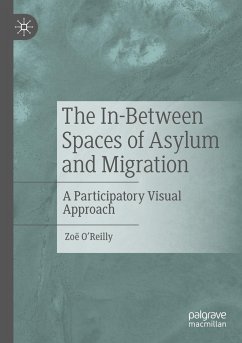
The Consequences of Mobility
Reflexivity, Social Inequality and the Reproduction of Precariousness in Highly Qualified Migration
Versandkostenfrei!
Versandfertig in 6-10 Tagen
68,99 €
inkl. MwSt.
Weitere Ausgaben:

PAYBACK Punkte
34 °P sammeln!
This book explores various forms of highly skilled mobility in the European Union, assessing the potential for this movement to contribute to individual and societal development. In doing so, the authors illustrate some of the issues arising from the opening up of Europe's borders, and exposing its education systems and labour markets to international competition. While acknowledging the potentially positive aspects of mobility, they also reveal many of the negative consequences arising from flaws in mobility governance and inequalities in access to opportunities, arguing that when the managem...
This book explores various forms of highly skilled mobility in the European Union, assessing the potential for this movement to contribute to individual and societal development. In doing so, the authors illustrate some of the issues arising from the opening up of Europe's borders, and exposing its education systems and labour markets to international competition. While acknowledging the potentially positive aspects of mobility, they also reveal many of the negative consequences arising from flaws in mobility governance and inequalities in access to opportunities, arguing that when the management of mobility goes 'wrong', we are left with a heightened level of precariousness and the reproduction of social inequality.
This discussion will be of interest to those working within Europe's mobility infrastructure, as well as policymakers in the mobility field and students and scholars from across the social sciences.
This discussion will be of interest to those working within Europe's mobility infrastructure, as well as policymakers in the mobility field and students and scholars from across the social sciences.














